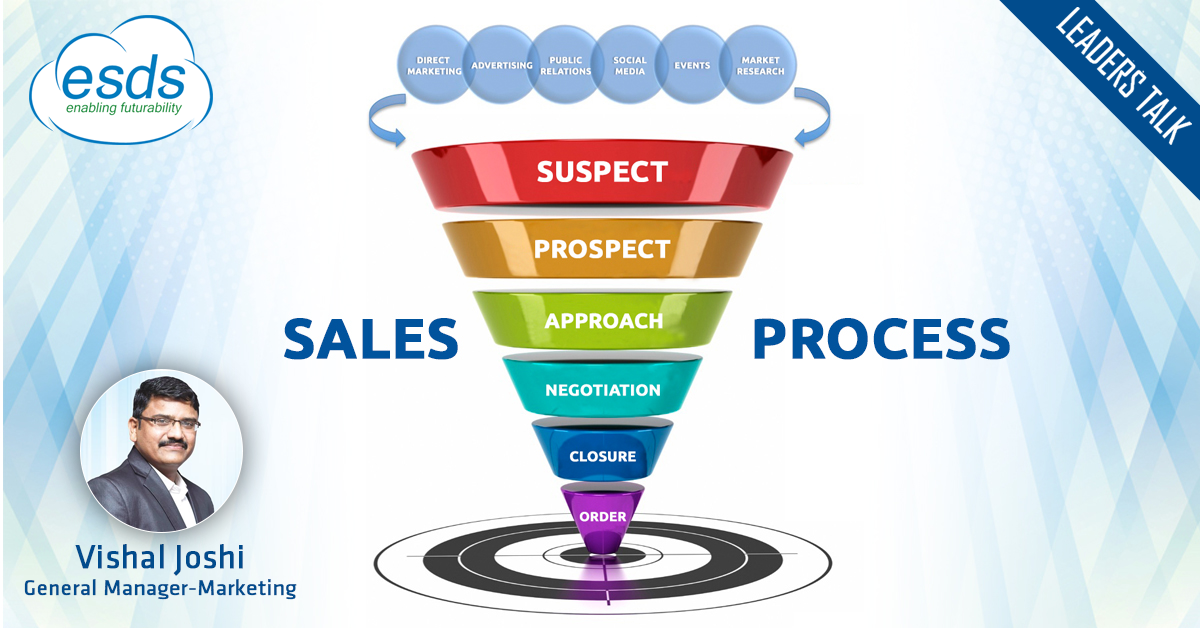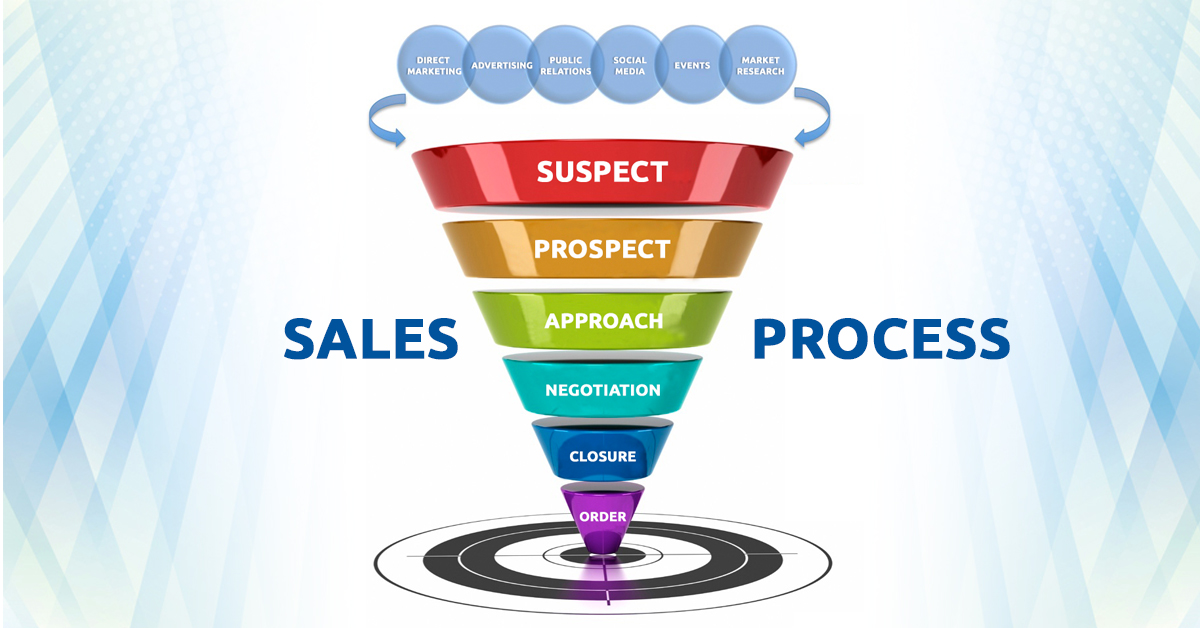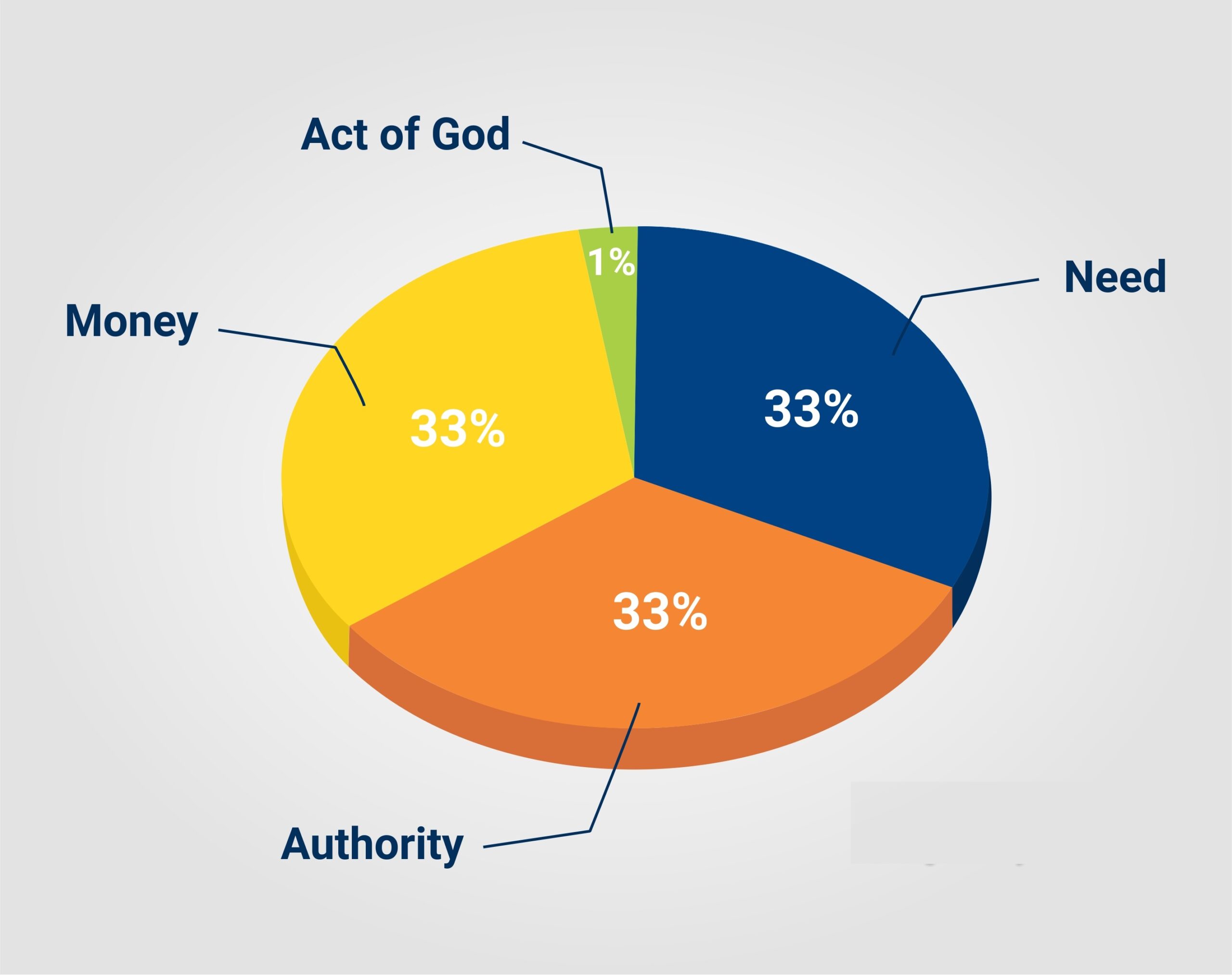Sales Process – Back to basics!
Sales Process Steps
Sales Process
Sales Process differs from organization to organization and industry to industry, but the basic would remain the same. So let’s go back to the basics and try to understand the stages (SPANCO) involved in the sales process:
- Suspect
Some people call this a cold calling or hunting stage as well. Basically, here the sales professionals do the identification of the potential client and check whether they have an actual need for the product or the service. They need to meet all the key decision-makers who are involved in the entire buying process of your prospective organization.
Like the person who is having the actual need and is going to raise an indent, along with the person having the technical & financial approval authority (M-money, A-authority & N-need). At this stage, the sales professional needs to make sure that he has all the relevant information about the organization, their process of buying and the requirements (ongoing or future), etc. give equal weight to Money, Authority, and Need while evaluating a suspect and if you are able to get more than 70% score, then that organization deserves to be your prospect.
- Prospect
Once the salesperson has completed stage one (Suspect), they need to bifurcate all the cold calling data into Hot, Warm & Cold leads for further follow-up. Post this activity, they have a clear picture of where & when to target. During this entire process, sales professionals have an opportunity to build and nurture relationships with all the stakeholders in the respective organization. This process will give them a clear-cut picture of the client’s requirements.
- Approach
This is an important stage where a salesperson needs to analyze the exact requirement, evaluation & qualification criteria of technical and purchase dept., the competition involved and the solution to be offered. During this stage, they also need to check if a demonstration or POC (Proof of Concept) can be offered, followed by technical & capability presentations to all the stakeholders. Here they must involve the technical pre-sales team for the right analysis of requirements and submit the most unique and competitive proposal with full confidence and a positive approach.
The most important thing to remember here is how you position your organization when you Approach a prospect. Your potential customer needs to be convinced about why he should give his business to you and why the competition does not deserve it. If the customer is going to use your quote to just negotiate with the competition, then the entire deal and the time invested by you will end up in a disaster and loss of an opportunity.
- Negotiation
This is an objection handling stage, at this stage, the salesperson needs to address all the queries and concerns (be it technical or commercial). The client will surely raise objections/questions related to product features, competitive bargaining, service level agreements, extended warranty, support escalations, billing, and delivery terms. The salesperson needs to confidently address all these objections/questions during this negotiation stage. The important thing to remember is that clients may be simultaneously negotiating with your competitor, thus you should work on your competitive advantages as well and keep a close watch on the deal. During this stage do not forget to observe the buying signals and convert them in your favor.
If you have properly done your homework and the MAN modeling as mentioned above, then it is very likely that the customer may give you the last chance to match the price of your competitor or he may simply disqualify one or more competitors and buy at your price based on the relationship you have build with them and the way you positioned your brand in front of them. Make sure you never walk out of a negotiation stage, as that results in the permanent loss of a customer, that customer will never come back to you even if your competitor fails to deliver the service or product after winning for the first time.
- Closure
Post handling objections and the negotiations stage, the salesperson needs to explain all the terms and conditions of the deal to the client and get consent. They may take the LOI (letter of intent) document signed (or email) from the client as the actual work order & advance payment may take some time as per the client’s business process. This is a win-win stage where both parties feel that they have got the best deal and can be closed mutually for further processing of the Award letter or Agreement(s).
- Order
This is the final sales stage where a legal document (confirmed work order) is being issued by the client’s purchase dept. to fulfill their requirement. The salesperson needs to verify all the content carefully before an acceptance of this document which has actual requirements mentioned along with prices, delivery terms, payment terms, and other legal clauses as well. The client will treat this as a reference order for future requirements and repeat business. After signing the work order acceptance, the deal is said to be closed.
Here the SALES PROCESS ends but the RELATIONSHIP STARTS with person-to-person level and stays on an organizational level too. Postorder acceptance, sales professionals need to make sure that the product/services are delivered to the client as agreed by obtaining the client’s feedback and payment collections as per the schedule.
The Best Salesperson has the best attitude throughout the sales process. He may not win every deal, but he will definitely win every heart. Every new relationship created by such champion salespeople results in some of the other benefits for them in the future, which can’t be calculated in numbers. Champion Salesperson also makes his “Best Practices” books from his previous experiences and keeps on improving with every deal, which helps him cross one milestone after the other and eventually becoming the Salesman of the year.
Happy Selling!!
- Sales Process – Back to basics! - May 2, 2018


